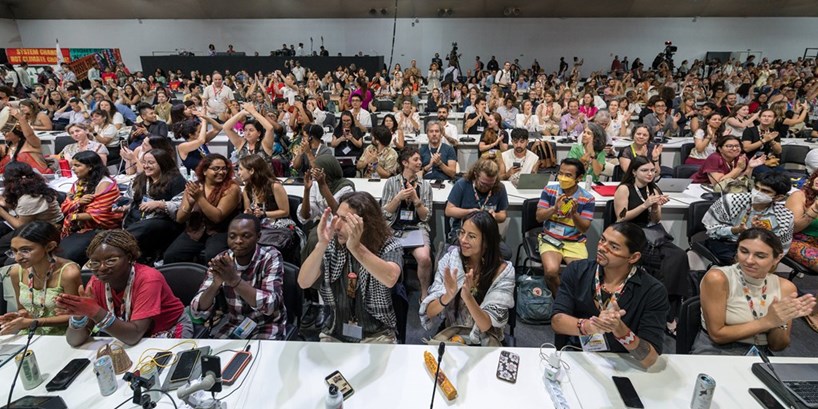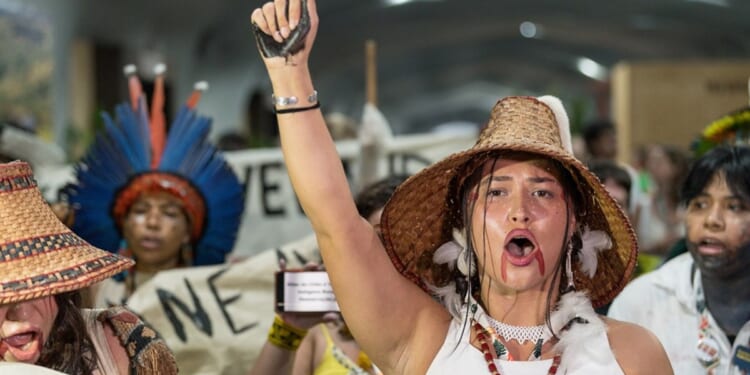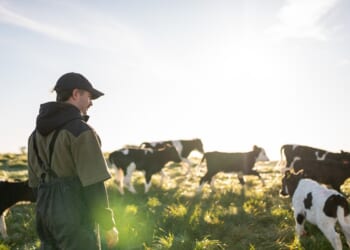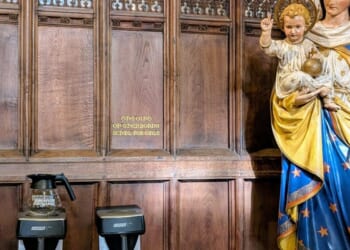THE lack of progress from governments at the COP30 climate talks in Brazil has left vulnerable communities at risk, Christian observers attending the summit have warned. As the talks came to a close on Friday, they called for renewed efforts, outside the formal UN process, to accelerate the phase-out of fossil fuels.
Climate campaigners have criticised wealthy countries for failing to deliver adequate financial support to help vulnerable countries with comparatively low emissions to adapt to climate change, and to fund the energy transition away from fossil fuels.
With low levels of finance on the table, Saudi Arabia and other fossil-fuel producing countries were able to block agreement on a road map (supported by dozens of countries, including the UK) to move away from coal, oil, and gas. A plan to produce a road map was eventually proposed informally by the Brazilian COP President, André Corrêa do Lago, and will be picked up at a separate conference to be hosted next year by Colombia and the Netherlands.
Patricia Mungcal, of the National Council of Churches in the Philippines, said that a concrete plan to move away from fossil fuels would have been COP30’s “gift to humankind”. She praised the countries which had fought for its inclusion, including the Colombian delegates who had delayed the final plenary for more than two hours in protest.
“I find hope outside the negotiation halls,” she said, “in the courage and bravery of Indigenous peoples to defend their land and care for the creation; in the international solidarity of nations and groups committing to the call for fossil-fuel phaseout, even outside the official texts; and with every negotiator and activist who held the line until the very end.”
Some Christian observers blamed the lack of finance as the main block to agreement during the talks.
Sam Perriman, who is the public policy lead at Tearfund, said: “Disappointingly, wealthy nations have once again failed to stump up enough cash for climate finance, holding back communities living in poverty as they adapt to the impacts of climate breakdown. The amount that has been promised falls far short of what is needed to help communities adapt to a more dangerous and less predictable climate.”
The presence at COP30 of large numbers of Indigenous people from the Amazon region, as well as the equatorial heat and humidity of the host country, were reminders of what is at stake for the communities most vulnerable to the effects of climate change.
 ALBIN HILLERTCivil society representatives applaud at a People’s plenary held on Friday, the final day of COP30
ALBIN HILLERTCivil society representatives applaud at a People’s plenary held on Friday, the final day of COP30
On the penultimate day of the meeting, the entire venue had to be evacuated after an electrical fault caused a large fire to break out which engulfed several national pavilions and forced the talks to be suspended for most of a day. Thirteen people were treated for smoke inhalation.
There was, however, an agreement at the summit to ensure that the energy transition from fossil fuels to renewables was done without disenfranchising workers in affected industries and other communities.
Developed countries also agreed to triple finance for adaptation by 2035. At the Glasgow summit in 2021, however, the same countries promised to double adaptation spending by 2025, but failed to do so.
“These missed deadlines and broken promises from the global North is why there is a lack of trust from poorer nations,” Christian Aid’s global advocacy lead, Mariana Paoli, said.
The multilateral process survived in the face of hostility from President Trump, who has withdrawn the United States from the Paris Agreement. The UN climate chief, Simon Stiell, praised COP30 for showing that “climate co-operation is alive and kicking”. It had, he said, kept “humanity in the fight for a liveable planet. And that’s despite roaring political headwinds. That while one country stepped back, 194 countries have stood firm in solidarity.”
Eyes are already turning to next year’s summit, which will take place in Turkey. The country won a long-running dispute with Australia for the rights to host COP31. In return, Australia will play a part in overseeing part of the negotiations.
“As we leave Belém and look toward COP31, our final reflection is clear: the world cannot afford another year of half-measures,” Laura Saravia, of the Lutheran Church of El Salvador, said. “Communities in developing countries who have contributed the least to the climate crisis, yet face its harshest impacts, need real progress — not promises. Our futures depend on the decisions taken in these halls.”
She concluded: “COP30 has shown moments of courage, but the gaps that remain expose a deeper truth: justice and human rights must be the foundation of every climate commitment. As we move into the next phase, we need stronger political will; COP31 must be defined by action that respects generations to come and responds to the realities of communities today.”
Joe Ware is senior climate journalist at Christian Aid.

















